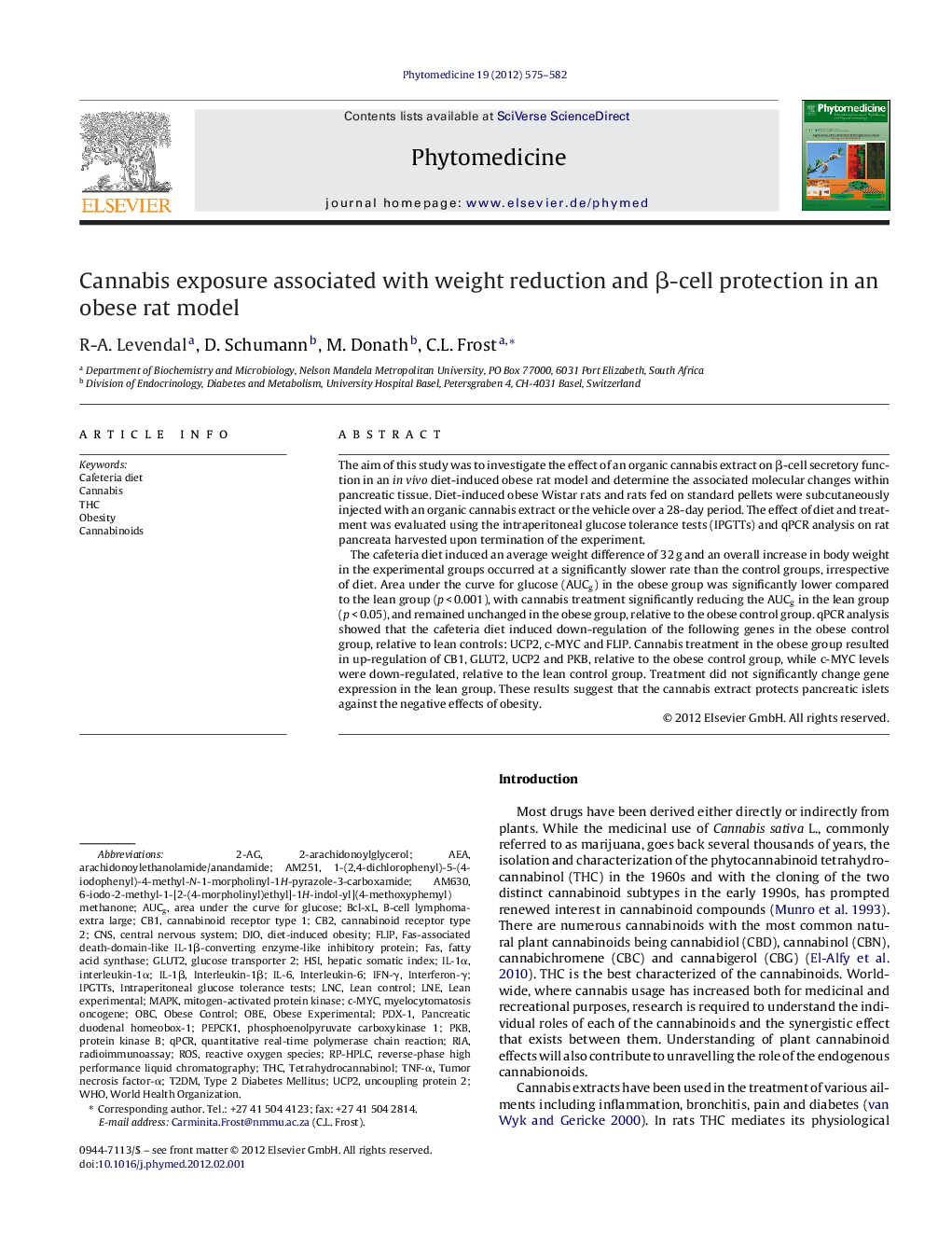| Article ID | Journal | Published Year | Pages | File Type |
|---|---|---|---|---|
| 2497070 | Phytomedicine | 2012 | 8 Pages |
The aim of this study was to investigate the effect of an organic cannabis extract on β-cell secretory function in an in vivo diet-induced obese rat model and determine the associated molecular changes within pancreatic tissue. Diet-induced obese Wistar rats and rats fed on standard pellets were subcutaneously injected with an organic cannabis extract or the vehicle over a 28-day period. The effect of diet and treatment was evaluated using the intraperitoneal glucose tolerance tests (IPGTTs) and qPCR analysis on rat pancreata harvested upon termination of the experiment.The cafeteria diet induced an average weight difference of 32 g and an overall increase in body weight in the experimental groups occurred at a significantly slower rate than the control groups, irrespective of diet. Area under the curve for glucose (AUCg) in the obese group was significantly lower compared to the lean group (p < 0.001), with cannabis treatment significantly reducing the AUCg in the lean group (p < 0.05), and remained unchanged in the obese group, relative to the obese control group. qPCR analysis showed that the cafeteria diet induced down-regulation of the following genes in the obese control group, relative to lean controls: UCP2, c-MYC and FLIP. Cannabis treatment in the obese group resulted in up-regulation of CB1, GLUT2, UCP2 and PKB, relative to the obese control group, while c-MYC levels were down-regulated, relative to the lean control group. Treatment did not significantly change gene expression in the lean group. These results suggest that the cannabis extract protects pancreatic islets against the negative effects of obesity.
